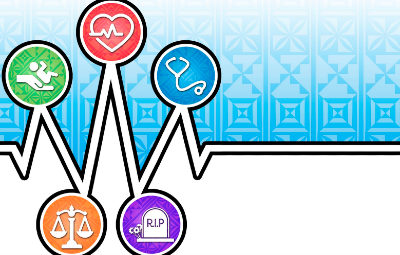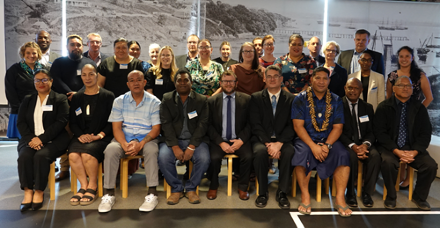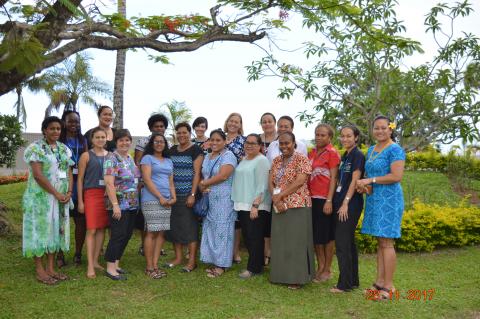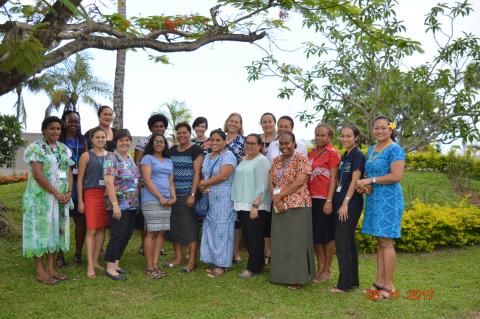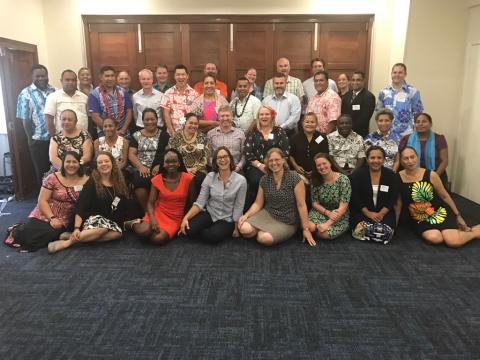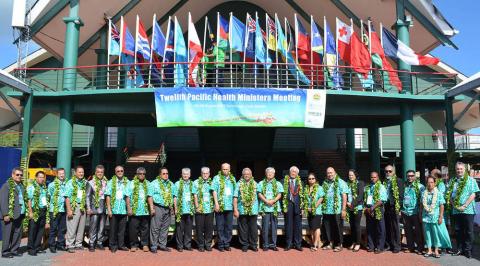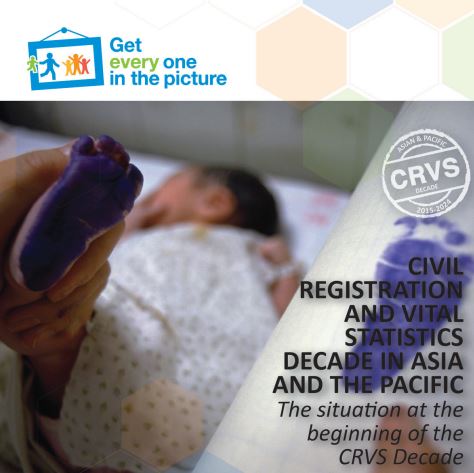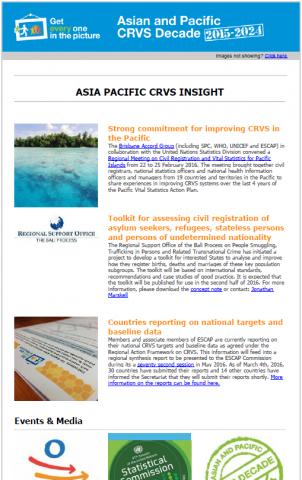Civil registration is under the responsibility of the Ministry of Justice, through the Registrar’s General Office, who now works with the Ministry of Health to produce more accurate data.
A CRVS Committee was re-established in 2014, with representatives from the Ministries of Health, Justice, Internal Affairs, Finance, Education, Police, Elections Office, the Statistics Department, the National ID Office and the Courts, to build a better coordination and data sharing mechanism. In 2016, birth registration within one year of occurrence was estimated to be 96%, whereas it is only 58% for death registration in the same time period. The legally defined time limit for birth and death registration is 3 weeks, and a death registration is not necessary for funeral permit. A centralized database has been created to account for all events, and this digitalization process should move further with the e-Government World Bank funded project (2019-2024). Among other policies, the project will improve Tonga’s civil registration and national ID systems, ensuring that each Tongan citizen and resident is assigned a unique ID number at birth, that their legal identity can be authenticated for accessing services in-person and online, and that birth, death and marriage records are linked.
Like many countries in the Pacific region, Tonga faces difficulties in their CRVS system linked to the geography of its territory, made of scarcely populated islands, which has lead in the past to some problems, for example with natural disasters, islands’ records usually being transmitted to the central system on a yearly basis or less. The legal framework around civil registration, outdated, needs adaptation to newly emerging challenges or to up-to-date technological innovations. It started to be reviewed in 2016. The collaboration between agencies is also an important subject on the road to complete civil registration and has been one of the top objectives of the CRVS committee.
Ms.Temaleti Manakovi Pahulu, Chief Executive Officer/Deputy Secretary at Registrar General's Office, Ministry of Justice
Goal 1. Universal civil registration of births, deaths and other vital events |
Goal 1 Targets:
Goal 2. All individuals are provided with legal documentation of civil registration of births, deaths and other vital events, as necessary, to claim identity, civil status and ensuing rights |
Goal 2 Targets:
Goal 3. Accurate, complete and timely vital statistics (including on causes of death) are produced based on registration records and are disseminated |
Goal 3 Targets:
Goal 1. Universal civil registration of births, deaths and other vital events |
Goal 1 is an expression of the internationally accepted principle of the universal coverage of civil registration. The CRVS system should register all vital events occurring in the territory and jurisdiction of the country or area, including among hard-to-reach and marginalized populations.
National Targets:
Note: This country has not submitted estimates for the number of births for all years. The level of completeness of birth registration was therefore assessed with international estimates for every year, to allow comparison. These measurements are therefore to be interpreted with caution.
BASELINE
201496%
MIDTERM
201884%
TARGET
202495%
MIDTERM
201293.4%
TARGET
202497%
TARGET
202484%
Note: This country has not submitted estimates for the number of deaths for all years. The level of completeness of death registration was therefore assessed with international estimates for every year, to allow comparison. These measurements are therefore to be interpreted with caution.
baseline
201472%
MIDTERM
201880%
TARGET
202485%
Goal 2. All individuals are provided with legal documentation of civil registration of births, deaths and other vital events, as necessary, to claim identity, civil status and ensuing rights |
Goal 2 reflects that CRVS systems provide legal documentation of civil registration to individuals and families for legal and administrative purposes. Legal documentation is strongly linked with a broad range of rights and activities, in particular legal identity. This goal addresses the distinction between the civil registration of a vital event and the possession of formal proof that it took place, in the form of legal documentation.
National Targets:
baseline
201334%
MIDTERM
201840%
TARGET
202495%
TARGET
202480%
Goal 3. Accurate, complete and timely vital statistics (including on causes of death) are produced based on registration records and are disseminated |
Goal 3 highlights the critical importance of civil registration being linked to the production and quality assurance of vital statistics on the occurrence and characteristics of vital events.
National Targets:
TARGET
Target achieved
TARGET
Target achieved
Note: This target was not monitored as part of the Midterm Questionnaire on the Implementation of the Regional Action Framework for CRVS in Asia and the Pacific.
baseline
201450%
TARGET
202495%
TARGET
20245%
Note: In light of recent countries’ experiences, Verbal autopsy is not encouraged to be applied to a large population scale, but rather on a representative sample. To reflect this, Target 3E is not anymore monitored by the coverage percentage of Verbal autopsy, but by the use or not of Verbal autopsy and its different applications.
MIDTERM
No
TARGET
2024Yes
TARGET
2017
TARGET
2017
TARGET
2017

National Coordination Mechanism
Status in Tonga: Complete

Comprehensive Assessment
Status in Tonga: Complete

National Targets for 2024
Status in Tonga: Complete

Monitoring & Reporting Plan
Status in Tonga: Plans

Inequality Assessment
Status in Tonga: Not started

National Strategy
Status in Tonga: Complete

National Focal Point
Status in Tonga: Complete

Reporting to ESCAP - Baseline
Status in Tonga: Complete

Reporting to ESCAP - Midterm
Status in Tonga: Complete


